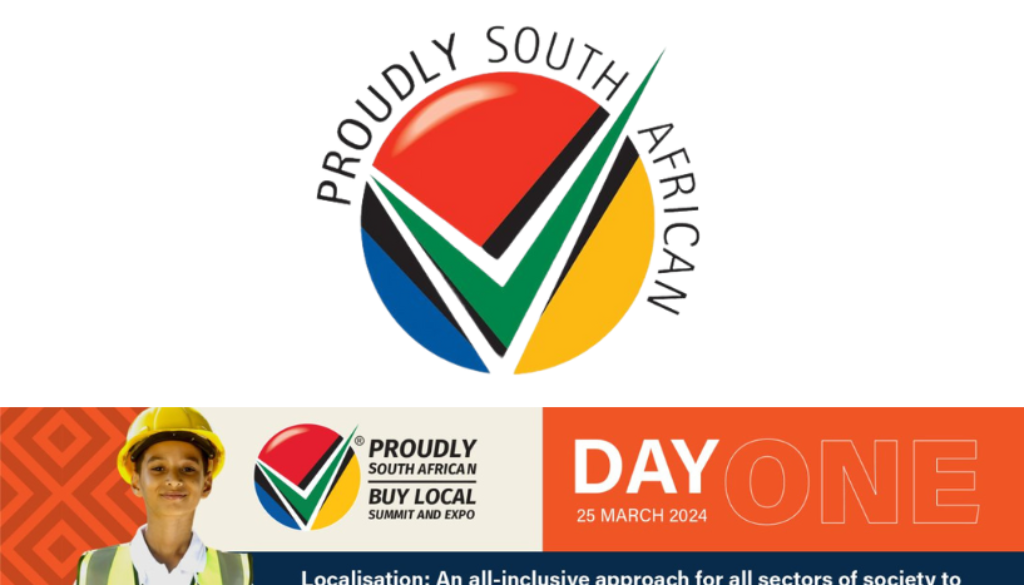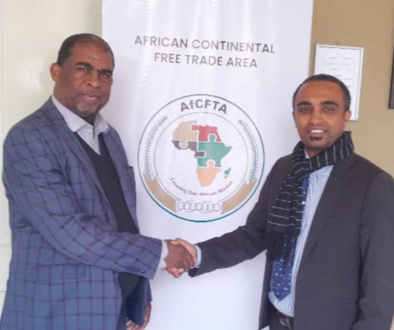Proudly SA Embracing Localisation: A Path to Economic Prosperity
smesupportservices.online Blog, Business, News 0
In a global economy where interconnectedness reigns supreme, the concept of localisation stands out as a beacon of economic resilience and sustainability. This sentiment rings especially true in South Africa, a nation rich in diversity and entrepreneurial spirit. Proudly, South Africa is set to host a two-day business event on the 25th and 26th of March 2024, spotlighting the theme of localisation and its pivotal role in fostering economic growth and job creation. Registration link here.
Day 1: Setting the Stage
The inaugural day of the event promises a lineup of esteemed speakers and dignitaries, each bringing their unique perspectives to the forefront of the conversation. Minister Ebrahim Patel, a stalwart in South Africa’s economic landscape, will provide insights into government strategies for fostering localisation. Joining him will be Mr. Panyaza Lesufi, Premier of Gauteng, offering regional perspectives and initiatives. Additionally, Ms. Fifi Peters, Senior Anchor at CNBC and an Award-Winning Journalist, will provide invaluable insights from the media’s standpoint, highlighting the importance of public awareness and engagement in localisation efforts.
Panel Discussion: Localisation – an All-Inclusive Approach for Economic Growth and Job Creation
The highlight of day one will be an enriching panel discussion aimed at exploring the intricacies of localisation and charting a path forward for inclusive economic growth and job creation. The panel comprises a diverse array of stakeholders, each offering unique perspectives:
-
Malebo Mabitjie-Thompson – Acting Director-General, Department of Trade, Industry, and Competition, South Africa. With her deep understanding of policy frameworks and regulatory mechanisms, Mabitjie-Thompson will shed light on the government’s role in facilitating localisation initiatives.
-
Ms. Zingiswa Losi – President, Congress of South African Trade Unions (COSATU). As a prominent voice for labor rights and social justice, Losi will advocate for inclusive policies that prioritize workers’ interests and ensure fair labor practices within local industries.
-
Mr. Thulani Tshefuta – Community Constituency & Board Member, Proudly South African. Tshefuta brings a grassroots perspective, representing the voices of local communities and underserved constituencies. His insights will underscore the importance of community engagement and empowerment in driving sustainable economic development.
-
Mr. Cas Coovadia – CEO, Business Unity South Africa. With his extensive experience in business advocacy and corporate leadership, Coovadia will offer strategic insights into how businesses can align their interests with the goals of localisation, driving innovation and competitiveness in local markets.
-
Ms. Phuthi Mahanyele-Dabengwa – CEO, Naspers. Mahanyele-Dabengwa, a trailblazer in the tech and media sector, will provide perspectives on leveraging technology and innovation to promote local entrepreneurship and address socio-economic disparities.
Embracing Localisation for Economic Empowerment
At its core, localisation embodies the principles of inclusivity, empowerment, and sustainability. By prioritizing local production, procurement, and consumption, countries like South Africa can unlock a plethora of benefits for their economies.
-
Stimulating Economic Growth: Localisation fosters the growth of domestic industries, creating a ripple effect throughout the economy. By supporting local businesses, communities can retain more wealth within their borders, fueling further economic activity.
-
Job Creation: Perhaps one of the most significant advantages of localisation is its potential to generate employment opportunities. As industries flourish and demand for local goods and services increases, job prospects expand, providing livelihoods for countless individuals.
-
Cultural Preservation: Embracing local products and traditions not only bolsters economic prosperity but also preserves cultural heritage. By celebrating indigenous craftsmanship and traditions, communities can safeguard their identity in an increasingly homogenized world.
-
Environmental Sustainability: Localisation often goes hand in hand with sustainable practices, reducing the carbon footprint associated with long-distance transportation and promoting eco-friendly production methods.
Looking Ahead: A Call to Action
As the curtain rises on South Africa’s two-day business event, the spotlight shines brightly on the promise and potential of localisation. However, for this vision to materialize, it requires concerted efforts from all stakeholders involved. Governments must enact supportive policies, businesses must prioritize local sourcing, and consumers must embrace the value of homegrown products.
In the words of Nelson Mandela, “It always seems impossible until it’s done.” Indeed, the journey towards widespread localisation may seem daunting, but with collaboration and determination, it’s a feat well within reach. As South Africa takes the helm in championing this cause, let us heed the call to action and pave the way towards a future where localisation serves as the cornerstone of economic prosperity and social cohesion.



